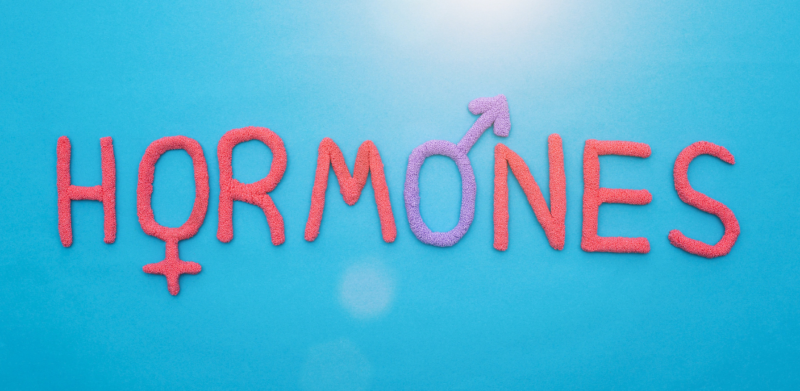Would you have any idea how to tell if your hormone levels are out of whack? For most women, there are often signs but it’s not always easy to know that they could be linked to your hormones.
Wondering if you have hormone imbalances? If your levels of certain hormones fluctuate or go higher or lower than they should, it can have major effects on your wellbeing. Hormone tests are the only way to know for sure but these signs could suggest that something isn’t quite right with your hormone health.
1. You’re super tired a lot
Most of us feel tired sometimes but it’s usually just a bit of a blip that you can get past by catching up on sleep and making sure your lifestyle is healthy. If your fatigue is down to hormones though, it’s likely that you’ll still feel tired – no matter how much you manage to sleep.
What if you’re already getting good sleep and eating healthy but you’re still feeling exhausted most or all of the time? It can sometimes be linked to hormone imbalances. If you also tend to alternate between extreme fatigue and periods of feeling wired, your levels of the stress hormone, cortisol, could be a factor. Thyroid imbalances can also be a culprit for fatigue.
2. You’re really struggling with anxiety
Excessive stress and anxiety isn’t always strictly a mental health problem. Chronic stress can raise cortisol levels at inappropriate times and this can potentially send the adrenal glands into overdrive. The end result? Anxiety, fatigue and even depression.
Estrogen is another hormone that can trigger feelings of anxiety when levels are less than optimum. According to research, estrogen has a calming effect on fear response but low levels can throw this off and pave the way for anxiety.
Thyroid hormones can also mimic anxiety, especially if your body isn’t producing enough of them.
3. You have PMS
Tend to get PMS symptoms that are off the scale during your menstrual cycle? This can be anything from mega bloating to major irritability but if it’s on the extreme side, it could be a sign that your estrogen levels aren’t balanced during this phase of your cycle.
More specifically, it’s probably an indication that you’ve got high estrogen levels between ovulation and menstruation. This can be balanced out and leafy greens can be your best friend here. They contain indole-3 carbinol, which can act as a hormone balancer to regulate estrogen levels.
4. You can’t seem to lose weight
Finding it a big struggle to lose weight or noticing that you keep gaining weight? Stress can encourage your body to produce more cortisol, which is a big factor in storing fat (especially for storing belly fat).
If you just can’t seem to catch a break when it comes to your weight, even when you’re exercising and eating healthy, it could be a sign that your cortisol levels need to be brought back into balance. Stress management can be a key part of doing this and lifestyle factors such as diet and exercise can also help a lot.
5. You’ve noticed changes to your skin and/or hair
Does your skin seem to be getting drier lately? Or maybe you’ve noticed that your hair is getting thinner or falling out more? Nutrition and stress can play a part in this but if they’re not the obvious culprits, it may be time to look more closely at your hormone health.
Thyroid hormones can affect the health of your skin and hair so it’s worth getting your thyroid health checked out if you consistently notice changes in the look and feel of your skin and hair.
6. You can’t kick your cravings
Tried everything to distance yourself from cravings and still getting nowhere? It may not just be a willpower issues. Sometimes, your hormones may be the real culprit for why you can’t stop craving certain foods.
Chronic stress and high cortisol levels can cause sugar and fatty food cravings, while adrenal imbalances can lead to cravings for salty snacks. Keeping a food and mood diary can help you to pinpoint whether your cravings are really linked to mood or if you crave certain foods with no obvious link to emotional eating.
There can be another factor involved here too. Eating a lot of sugar can spike your blood sugar and insulin levels and this can affect your levels of estrogen and progesterone, two major sex hormones.
Worried that you could be struggling with a hormone imbalance? Speak to your doctor about hormone testing, which can throw a lot more light on what might be happening in your body.
In the meantime, lifestyle factors such as getting lots of sleep, eating a diet that’s packed with nutritious and healthy foods and managing your stress levels can help a lot with hormone health. Book a Wellness Audit with Coach Carla to learn more about what you can do.





